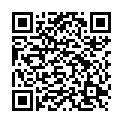|
|
|
| Module code: MAIM-421 |
|
|
2S (2 hours per week) |
|
3 |
| Semester: 4 |
| Mandatory course: yes |
Language of instruction:
English |
Assessment:
According to General Study and Examination Regulations of htw saar (ASPO);
can be repeated semesterly
[updated 30.01.2020]
|
MAIM-421 (P420-0509, P420-0510) International Management, Master, ASPO 01.10.2012
, semester 4, mandatory course
MAIM-421 (P420-0509, P420-0510) International Management, Master, ASPO 01.10.2016
, semester 4, mandatory course
MAIM-421 (P420-0509, P420-0510) International Management, Master, ASPO 01.10.2020
, semester 4, mandatory course
|
30 class hours (= 22.5 clock hours) over a 15-week period.
The total student study time is 90 hours (equivalent to 3 ECTS credits).
There are therefore 67.5 hours available for class preparation and follow-up work and exam preparation.
|
Recommended prerequisites (modules):
None.
|
Recommended as prerequisite for:
|
Module coordinator:
Prof. Dr. Stefanie Jensen |
Lecturer:
Prof. Dr. Stefanie Jensen
[updated 18.08.2016]
|
Learning outcomes:
After successfully completing this module the student should be able to
present the core content of their master thesis and their practical study phase in a clear and
comprehensible manner within a given time frame,
position their own scientific work in the existing knowledge environment,
link and present their theoretical and practical findings,
carry out a scientific discussion with a critical audience,
critically examine their approaches and outline the limits of their own scientific work,
associate with the group in the sense of a constructive dialogue
immerse into the Thesis Topics of the peer students incl. asking relevant questions to peers
[updated 17.12.2019]
|
Module content:
The colloquium accompanies the student while he/she is writing their master thesis in the 3rd semester. It will take place in the form of block seminars in which the problems, approaches, solutions and limits of the master theses will be presented and discussed with fellow students and the lecturer.
In addition, an overview of the experiences made during the practical study phase will be provided. The exchange of experience between the students will be emphasized here, as well as feedback from the students.
[updated 10.12.2019]
|
Teaching methods/Media:
Oral presentation, expert discussions
[updated 07.01.2016]
|
Recommended or required reading:
Dependent on the topic of the master thesis
[updated 07.01.2016]
|


